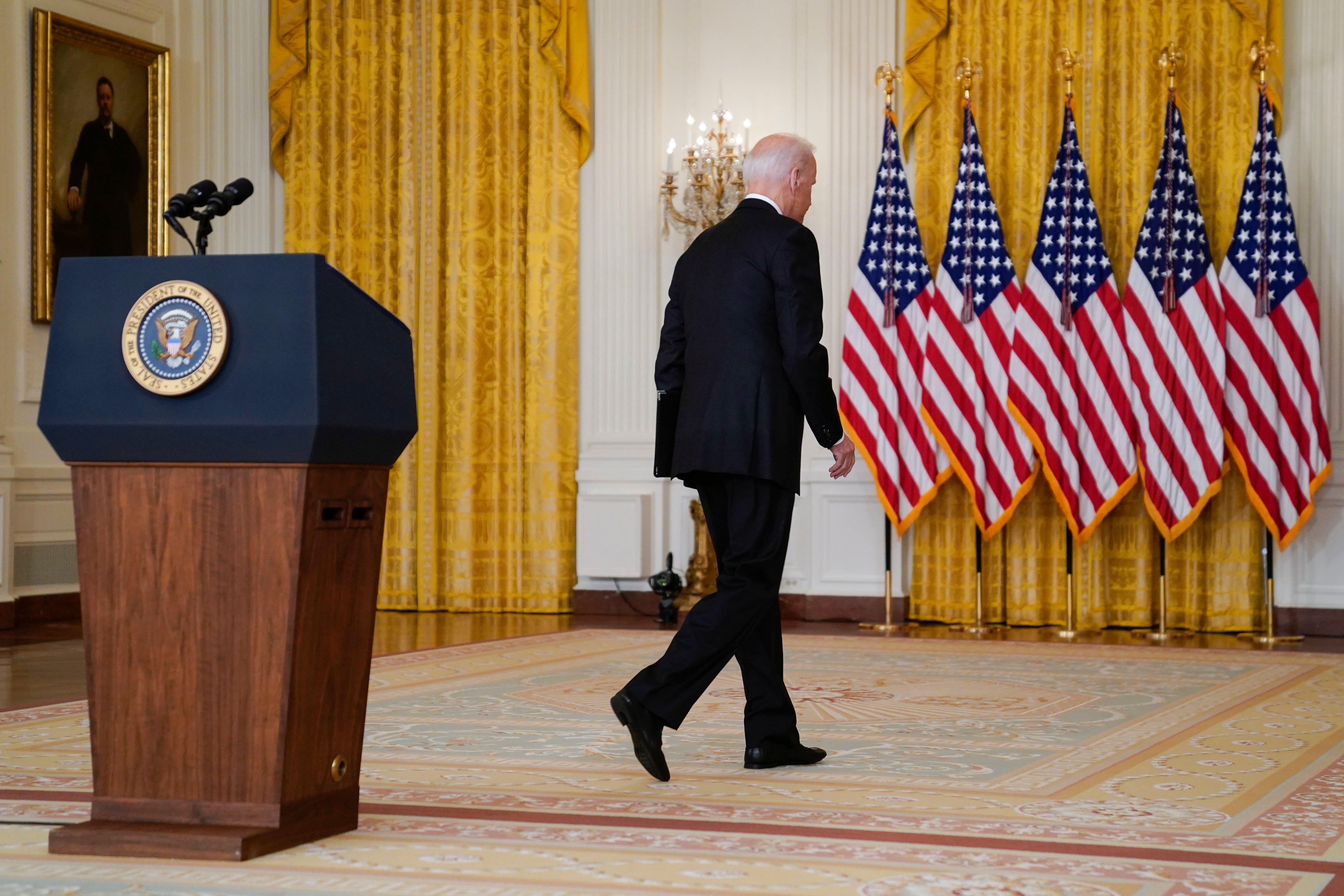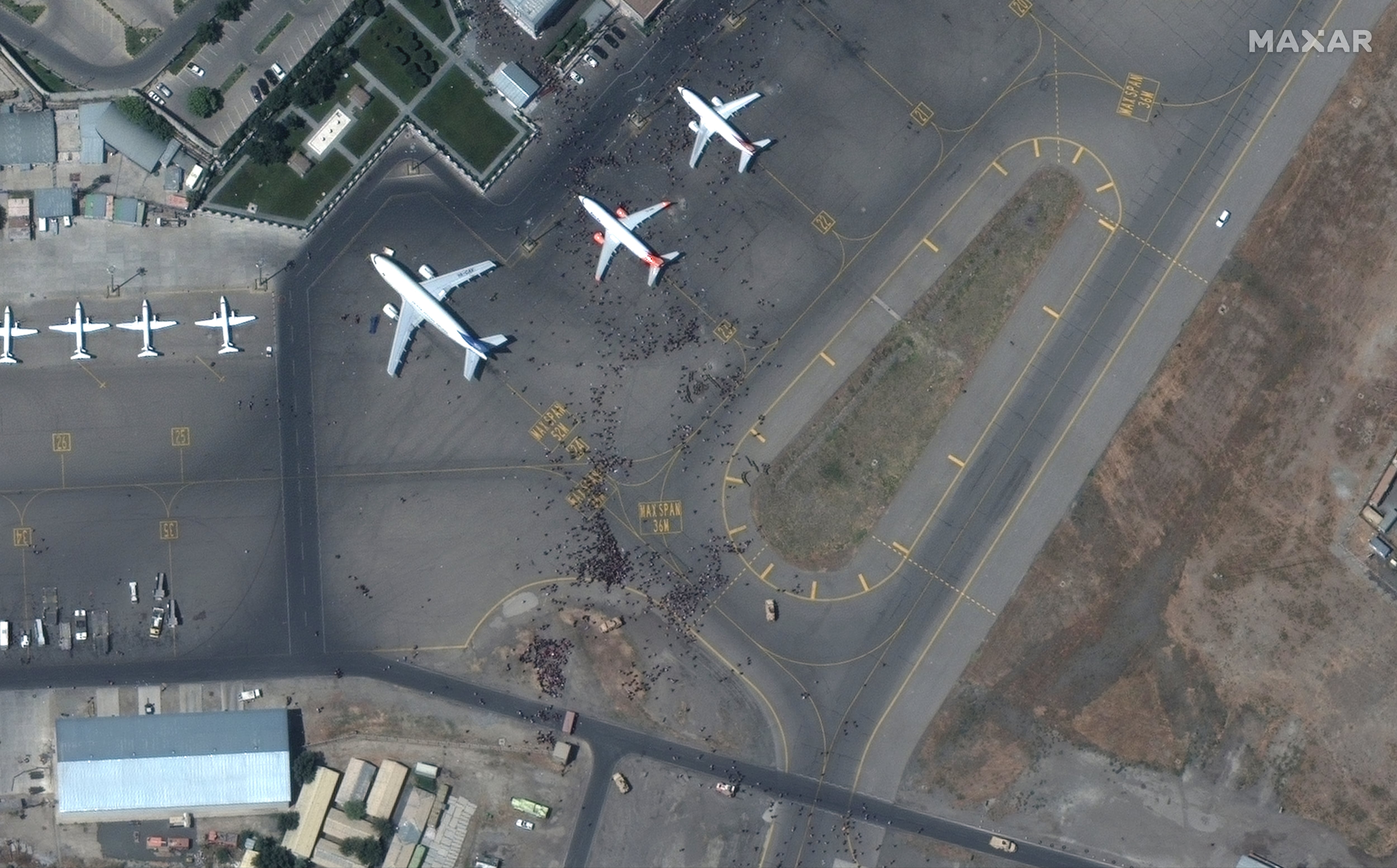In a perfect world, according to defense officials, U.S. military aircraft would be able to get 5,000 Afghans out of the Kabul airport each day. But perfect is the furthest thing from the conditions on the ground in Afghanistan right now.
After flights were grounded most of Monday to allow troops to corral a crowd of desperate Afghans who’d stormed the airport hoping to board C-17 Globemasters, the Pentagon confirmed in the early evening that flights had resumed and that they are working on the logistics to get as many as 22,000 Afghan interpreters, their families and other vulnerable Afghans into the U.S. ― by Aug. 31.
“Over the next two weeks, we’re going to be as aggressive as we can in moving as many people as we can,” Pentagon spokesman John Kirby told Military Times. “That’s seats on airplanes, not just military airplanes, but commercial and charter airplanes as well.”
For now, C-17s arriving to drop off troops are loading up with embassy personnel, other American citizens and Afghan special immigrant visa applicants, moving to one of a small handful of partner countries who have agreed to be way stations. So far, Qatar is the only confirmed location.
With the airport now under control, all estimated 22,000 people could be out in a week. If it takes longer than that, officials couldn’t confirm whether the mission would be extended into September.
President Joe Biden said in an address Monday that the U.S. delayed SIV evacuations so as not to create a panic in the country.
“Some of the Afghans did not want to leave earlier, still hopeful for their country,” he said. “It was also in part because the Afghan government and its supporters discouraged us from organizing a mass exodus, to avoid triggering, as they said, a crisis of confidence.”
RELATED

The Afghanistan crisis action group stood up in July, at the State Department’s behest, more than two months after President Joe Biden announced in April the full withdrawal of troops from Afghanistan by the end of the summer. Almost immediately, Americans and Afghans alike wanted to know the exit plan for locals who had risked their lives to help U.S. troops.
They didn’t get their answer until late July, when State announced that 4,000 Afghans would be flown to a third country to complete their security screenings, while 750 would go straight to Fort Lee, Virginia, to do their final medical screenings before receiving their special immigrant visas.
Roughly 2,000 of those have made it to the U.S. since. On Monday, the Pentagon confirmed that Fort Bliss, Texas, and Fort McCoy, Wisconsin, would be opened up to temporarily house incoming refugees, with the capacity to take in up to 22,000 before the end of the month.
The action group will “continue to do everything in this department to continue this process,” Garry Reid, the group’s lead, told Military Times, up to and past the deadline, if that’s called for.
“We’re going to stay in this as long as it takes, as long as we can contribute,” he said.
But Kirby reiterated that Aug. 31 is still the deadline, and that 22,000 is more of a ceiling than a known head count.
“It doesn’t mean that there are going to be 22,000 people that need that support,” he said.
Weeks ago, when those evacuations began, the Taliban was rapidly conquering provincial capitals, but there was still a chance that SIVs not located in Kabul would be able to get themselves to the capital and to the airport to be processed. Now, the chances are more slim than ever.
When reinforcements have all arrived, there will be roughly 7,000 U.S. troops securing the Kabul airport, and their mission so far is confined there, Kirby said, with no plans currently to help escort anyone to the airport.
So while State has roughly 18,000 known applicants, and DoD is prepared to take in even more, the real determining factor will be whether these Afghans can make it safely to Hamid Karzai International.
As for whether the security mission there could go past August, in an effort to evacuate as many as possible, Kirby could not say definitively.
“Beyond Aug. 31, it’s just too difficult to speculate, and we wouldn’t get ahead of decisions that are yet to be made,” he said.
Meghann Myers is the Pentagon bureau chief at Military Times. She covers operations, policy, personnel, leadership and other issues affecting service members.





